December 15, 2011 (View All Issues)
- Asparaginase Erwinia chrysanthemi (Erwinaze) as a component of a multiagent chemotherapeutic regimen for the treatment of acute lymphoblastic leukemia in patients who have...
- Al B. Benson III, MD, FACP
- Richard Boxer, MD, FACS
- Carlton G. Brown, RN, PhD, AOCN
- Barrie R. Cassileth, PhD
- E. David Crawford, MD
- Emil J....
FDA Announces Bevacizumab Decision: Agency Will Revoke Breast Cancer Indication
On November 18, FDA Commissioner Margaret A. Hamburg, MD, said she is revoking the agency’s approval of the breast cancer indication for bevacizumab (Avastin) after concluding that the drug has not been shown to be safe and effective for that use.
Bevacizumab will remain on the market as an...
Breast Cancer Experts Voice Opinion and Express ‘Disappointment’ over FDA Decision
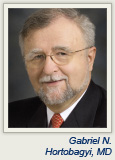 Gabriel N. Hortobagyi, MD, Chair of Medical Breast Oncology at The University of Texas MD Anderson Cancer Center, Houston, said he was “disappointed but not surprised” at the FDA decision to withdraw the bevacizumab (Avastin) indication in breast cancer.
Gabriel N. Hortobagyi, MD, Chair of Medical Breast Oncology at The University of Texas MD Anderson Cancer Center, Houston, said he was “disappointed but not surprised” at the FDA decision to withdraw the bevacizumab (Avastin) indication in breast cancer.
“Once the FDA put this in the hands of...
A Conversation with Ezekiel J. Emanuel, MD, PhD
Last September, Ezekiel J. Emanuel, MD, PhD, a leading scholar in bioethics and health-care policy, was named the Diane v.S. Levy and Robert M. Levy University Professor and Vice Provost for Global Initiatives at the University of Pennsylvania in Philadelphia. His appointment will be shared between ...
Prostate Cancer Screening Reconsidered
Prostate cancer is the most prevalent nonskin cancer in men. An estimated 16% of men are diagnosed with prostate cancer, yet only 3% of men die from it.1 Unlike other cancers, prostate cancer is associated with a prolonged lead-time, meaning it can take anywhere from 5 to 12 years to become...
Optimizing HER2-directed Therapy in the Clinic
 Seminal research in the treatment of HER2-positive breast cancer has been led by Edith A. Perez, MD, the Serene M. and Frances C. Durling Professor of Medicine at the Mayo Clinic, Jacksonville, Florida. The ASCO Post asked Dr. Perez to share her approach to HER2-directed therapy.
Seminal research in the treatment of HER2-positive breast cancer has been led by Edith A. Perez, MD, the Serene M. and Frances C. Durling Professor of Medicine at the Mayo Clinic, Jacksonville, Florida. The ASCO Post asked Dr. Perez to share her approach to HER2-directed therapy.
Testing...
2011 in Review: Oncology Drugs/Indications Newly Approved by FDA
 At press time, the FDA had granted approval for the following new agents and indications for cancer treatment in 2011.
At press time, the FDA had granted approval for the following new agents and indications for cancer treatment in 2011.
New Drug Approved to Treat Acute Lymphoblastic Leukemia
 The FDA has approved asparaginase Erwinia chrysanthemi (Erwinaze) to treat patients with acute lymphoblastic leukemia who have developed hypersensitivity to Escherichia coli–derived asparaginase (Elspar) and pegaspargase (Oncaspar). Acute lymphoblastic leukemia is the most commonly diagnosed...
The FDA has approved asparaginase Erwinia chrysanthemi (Erwinaze) to treat patients with acute lymphoblastic leukemia who have developed hypersensitivity to Escherichia coli–derived asparaginase (Elspar) and pegaspargase (Oncaspar). Acute lymphoblastic leukemia is the most commonly diagnosed...
How Should We Treat Nodular Lymphocyte-predominant Hodgkin Lymphoma?
 At the 2011 Pan-Pacific Lymphoma Conference in Kauai, Hawaii, Andreas Engert, MD, Chairman of the German Hodgkin Lymphoma Study Group (GHSG) and Professor of Medicine at the University Hospital of Cologne, Germany, discussed the treatment of nodular lymphocyte-predominant Hodgkin lymphoma (NLPHL),...
At the 2011 Pan-Pacific Lymphoma Conference in Kauai, Hawaii, Andreas Engert, MD, Chairman of the German Hodgkin Lymphoma Study Group (GHSG) and Professor of Medicine at the University Hospital of Cologne, Germany, discussed the treatment of nodular lymphocyte-predominant Hodgkin lymphoma (NLPHL),...
ASH Honors Janet Rowley, MD, and Brian Druker, MD
The American Society of Hematology (ASH) recognized Janet Rowley, MD, of the University of Chicago Medical Center, and Brian Druker, MD, of Oregon Health & Science University with the 2011 Ernest Beutler Lecture and Prize for their significant advances in the diagnosis and treatment of chronic...
Important Briefs from the 2011 European Multidisciplinary Cancer Congress
Nearly 16,000 people from 16 countries attended this year’s European Multidisciplinary Cancer Congress, held recently in Stockholm. The ASCO Post has featured several key reports from the meeting and will offer further coverage in upcoming issues. Additional noteworthy studies presented at the...
Benefit of Panitumumab Seen Primarily in Patients with Recurrent or Metastatic Head and Neck Cancer and HPV-negative Tumors
The addition of panitumumab (Vectibix) to chemotherapy improved overall and progression-free survival in patients with recurrent or metastatic squamous cell carcinoma of the head and neck, but its benefit was limited to patients whose tumors were negative for the human papillomavirus (HPV).1
 The...
The...
Gathering Data Point to Potential Advantages of Vismodegib in Basal Cell Carcinoma and Other Advanced Cancers
Vismodegib is a small-molecule, orally active hedgehog pathway inhibitor that has shown considerable promise in treating basal cell carcinoma and is currently being evaluated alone and in combination in early-phase trials in medulloblastoma and a long list of other cancers.1 Owing to its...
Neutrophil/Lymphocyte Ratio Can Upstage Patients with Bladder Cancer
A sizable proportion of bladder cancer patients who would benefit from neoadjuvant chemotherapy are not receiving it, researchers from the University of Wisconsin School of Medicine and Public Health, Madison, concluded.
Their conclusion was based on their assessment of the neutrophil/lymphocyte...
Lessons from a Northern Neighbor: A Conversation with Joseph M. Connors, MD
 Policy analysts searching for a better understanding of health-care models often compare the cancer delivery systems of Canada and the United States. The ASCO Post recently spoke with Joseph M. Connors, MD, Clinical Professor and Director of the BC Cancer Agency’s Centre for Lymphoid Cancer,...
Policy analysts searching for a better understanding of health-care models often compare the cancer delivery systems of Canada and the United States. The ASCO Post recently spoke with Joseph M. Connors, MD, Clinical Professor and Director of the BC Cancer Agency’s Centre for Lymphoid Cancer,...
Medical Students Can Now Be ASCO Members, Thanks to an Intern Who Pressed
ASCO has just added a membership category for medical students, spurred on by—you guessed it—a medical student.
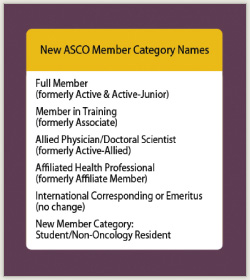 Daniel G. Stover, MD, knew he wanted to go into oncology from very early on. But when he contacted ASCO to join as an intern, having just graduated from Vanderbilt School of Medicine, he ...
Daniel G. Stover, MD, knew he wanted to go into oncology from very early on. But when he contacted ASCO to join as an intern, having just graduated from Vanderbilt School of Medicine, he ...
ASCO Helps Survivors Transition into Life after Treatment with New Booklet
Progress against cancer has helped save or extend the lives of millions of patients. Thanks to advances in medical research, there are about 12 million cancer survivors today in the United States. For patients transitioning back into everyday life after surgery, chemotherapy, radiation therapy, or...
ASCO Issues Blueprint for Transforming Cancer Research in the ‘Molecular Era’
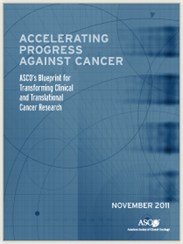 On November 3, ASCO issued a new report that lays out ASCO’s vision for transforming clinical and translational research to deliver more effective and personalized cancer therapies faster. The report, Accelerating Progress Against Cancer: ASCO’s Blueprint for Transforming Clinical and Translational ...
On November 3, ASCO issued a new report that lays out ASCO’s vision for transforming clinical and translational research to deliver more effective and personalized cancer therapies faster. The report, Accelerating Progress Against Cancer: ASCO’s Blueprint for Transforming Clinical and Translational ...
2012 GU Cancers Symposium to Reflect the Field’s Focus on Personalized Cancer Care
The 2012 Genitourinary Cancers Symposium, to be held in San Francisco February 2–4, will feature some exciting advancements in the field that center on personalized cancer care.
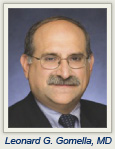 “The major cancer discussed at the meeting tends to be prostate cancer, and there hasn’t yet been a lot of specific...
“The major cancer discussed at the meeting tends to be prostate cancer, and there hasn’t yet been a lot of specific...
Help Your Patients Understand the Significant Research from 2011
![]() Direct your patients to www.cancer.net/podcasts to learn about the 2011 Clinical Cancer Advances. In a special podcast, patients can hear about this year’s most important advances in clinical cancer research and what these advances mean for their treatment and care. ■
Direct your patients to www.cancer.net/podcasts to learn about the 2011 Clinical Cancer Advances. In a special podcast, patients can hear about this year’s most important advances in clinical cancer research and what these advances mean for their treatment and care. ■
© 2011. American Society of ...
Clinical Cancer Advances 2011: ASCO’s Report on Progress Against Cancer
This year marks the 40th anniversary ofthe National Cancer Act and places a more prominent focus on how much progress against cancer has been made over the past 4 decades. In the past year alone, significant advances have been made in cancer prevention and screening, hard-to-treat cancers, and...
Journal of Oncology Practice Explores Use of Palliative Care in Practice
![]() A recent issue of the Journal of Oncology Practice features a special series of articles on palliative care and end-of-life issues in the oncology practice setting. Articles explore the integration of palliative care services in ambulatory settings, unique delivery mechanisms for palliative care,...
A recent issue of the Journal of Oncology Practice features a special series of articles on palliative care and end-of-life issues in the oncology practice setting. Articles explore the integration of palliative care services in ambulatory settings, unique delivery mechanisms for palliative care,...
FDA Approves First Drug to Treat Myelofibrosis
 The FDA has approved ruxolitinib (Jakafi), the first drug approved to specifically treat patients with the bone marrow disease myelofibrosis.
The FDA has approved ruxolitinib (Jakafi), the first drug approved to specifically treat patients with the bone marrow disease myelofibrosis.
Myelofibrosis is a disease in which the bone marrow is replaced by scar tissue resulting in blood cells being made in organs such as the liver and the...
510(k) Clearance Granted for OncoTrac
 Translational Sciences Corporation announced that it has received FDA 510(k) clearance for commercialization of its OncoTrac medical imaging software. OncoTrac is designed for efficient quantitative assessment of treatment response of metastatic tumors including those of the breast, lung,...
Translational Sciences Corporation announced that it has received FDA 510(k) clearance for commercialization of its OncoTrac medical imaging software. OncoTrac is designed for efficient quantitative assessment of treatment response of metastatic tumors including those of the breast, lung,...
Male Breast Cancer Differs from Breast Cancer in Women, but Little Data Informs Treatment
 Although a rare occurrence, men do get breast cancer, and when they do, it has a distinct biology from that of female breast cancer. About 90% of cases most closely resemble postmenopausal female invasive ductal carcinoma, and 10% are ductal carcinoma in situ (DCIS), which accounts for 25% of...
Although a rare occurrence, men do get breast cancer, and when they do, it has a distinct biology from that of female breast cancer. About 90% of cases most closely resemble postmenopausal female invasive ductal carcinoma, and 10% are ductal carcinoma in situ (DCIS), which accounts for 25% of...
American Society of Hematology Elects New Officers
The American Society of Hematology announced the election of three new members to its Executive Committee, the governing body of the organization, for terms to begin in January 2012.
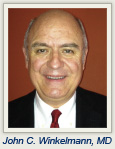

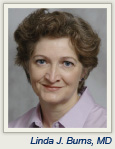 Linda J. Burns, MD, will serve a 1-year term as Vice President, followed by successive terms as President-Elect and ...
Linda J. Burns, MD, will serve a 1-year term as Vice President, followed by successive terms as President-Elect and ...
Improving Quality and Safety with Health Information Technology
 A well-documented flaw in paper-based health care is the propensity for medical errors. According to Blackford Middleton, MD, MPH, MSc, implementing clinical decision support software can decrease medical error, improve outcomes, and lower the costs of care. Presenting a session titled “Improving...
A well-documented flaw in paper-based health care is the propensity for medical errors. According to Blackford Middleton, MD, MPH, MSc, implementing clinical decision support software can decrease medical error, improve outcomes, and lower the costs of care. Presenting a session titled “Improving...
Oncologists Need Hands-on Approach in Developing Next Generation of EHRs
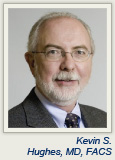 The electronic health record system offered by vendors is more like a filing cabinet, not the sophisticated, interactive database needed by busy oncologists, according to Kevin S. Hughes, MD, FACS, Co-Director, Avon Comprehensive Breast Evaluation Center, Massachusetts General Hospital, who...
The electronic health record system offered by vendors is more like a filing cabinet, not the sophisticated, interactive database needed by busy oncologists, according to Kevin S. Hughes, MD, FACS, Co-Director, Avon Comprehensive Breast Evaluation Center, Massachusetts General Hospital, who...
Need for Data Capture Crucial, Now and After ‘Meaningful Use’
 It’s never enough. Whether it is the Centers for Medicare & Medicaid Services (CMS), other payers, pharmaceutical manufacturers, or specialty companies, one can never provide enough data. When will it all end? The problem, or the opportunity for many, is that it won’t end. The need for discrete ...
It’s never enough. Whether it is the Centers for Medicare & Medicaid Services (CMS), other payers, pharmaceutical manufacturers, or specialty companies, one can never provide enough data. When will it all end? The problem, or the opportunity for many, is that it won’t end. The need for discrete ...
Reflections from The ASCO Post
The editors gratefully acknowledge all contributors to The ASCO Post and thank the columnists who contributed to Volume 2, January–December 2011:
Twitter Dominates Social Media Buzz at Stockholm Meeting
There was a time when clinical trial results were disseminated mainly through peer-reviewed journals that appeared in your mailbox. Computers and prompt reporting from medical conferences changed that, and same-day postings on medical websites brought “breaking news” a step closer. But the...
Researchers Find Remarkable Heterogeneity in Sarcomas
Does one size fit all for the treatment of sarcoma? The answer is a resounding “no,” according to Jean-Yves Blay, MD, Department of Medicine, Université Claude Bernard, and Unité INSERM (National Institute of Health and Medical Research Unit), Lyon, France. Researchers have been able to classify...
The Art and Grace of Just Letting Go
Like a breeze rippling across a lake, the end of your career is approaching and you cannot escape its path. You can see it coming, and before you know it the inexorable movement will rush past you. You have two choices: Build a sail so that you can capture the energy and move with it, or remain...
Significantly Longer Survival with Axitinib Compared to Sorafenib in Patients with Renal Cell Carcinoma
A phase III study comparing the vascular endothelial growth factor receptor (VEGFR) inhibitors axitinib and sorafenib (Nexavar) as second-line therapy in patients with metastatic renal cell carcinoma found that axitinib produced significantly longer progression-free survival. Published in The...
Significant Neurologic and Executive Function Impairment among Breast Cancer Survivors
Women who survive breast cancer show significant neurologic impairment, with outcomes appearing to be significantly poorer for those treated with chemotherapy, according to a report in the Archives of Neurology.
Investigators at Stanford University School of Medicine in California conducted an...
Evidence of Improved Survival for Lobectomy vs Limited Resection in Early-stage Lung Cancer
“Evidence is statistically inconclusive but suggestive that lobectomy, compared with limited resection, is associated with increased long-term survival for early-stage lung cancer,” according to a study reported in the Journal of the National Cancer Institute.
The study analyzed data from 679...
Solid Organ Transplant Recipients Have Increased Risk for Broad Range of Malignancies
In the News focuses on media reports that your patients may have questions about at their next visit. This continuing column will provide summaries of articles in the popular press that may prompt such questions, as well as comments from colleagues in the field.
 The Transplant Cancer Match Study,...
The Transplant Cancer Match Study,...
My Cancer Is Incurable, but My Future Is Limitless
 Cancer has nearly always been part of my life. When I was 6 years old, I was diagnosed with acute lymphoblastic leukemia. The doctors told my parents that unless I was treated immediately, I wouldn’t live longer than a month. Over the next 3 years, I underwent intensive courses of chemotherapy and...
Cancer has nearly always been part of my life. When I was 6 years old, I was diagnosed with acute lymphoblastic leukemia. The doctors told my parents that unless I was treated immediately, I wouldn’t live longer than a month. Over the next 3 years, I underwent intensive courses of chemotherapy and...
Medicare Reimbursement to Physicians: Déjà Vu All Over Again
In February 2011, The ASCO Post published an opinion piece (“Congress and the ‘Doctor Fix’: Looking Back, Looking Ahead”) about the ping-pong of legislative continuing resolutions to avert a 21.3% cut in physician reimbursement. These continuing resolutions were necessary because the Affordable...
Neural Stem Cell Transplantation May Improve Cognitive Function in Brain Cancer
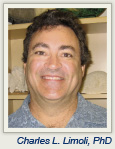 The potentially devastating long-term consequences on cognitive function in patients with brain cancer following cranial irradiation led Charles L. Limoli, PhD, Professor of Radiation Oncology, University of California, Irvine, to study neural stem cell transplantation and how the procedure may...
The potentially devastating long-term consequences on cognitive function in patients with brain cancer following cranial irradiation led Charles L. Limoli, PhD, Professor of Radiation Oncology, University of California, Irvine, to study neural stem cell transplantation and how the procedure may...
